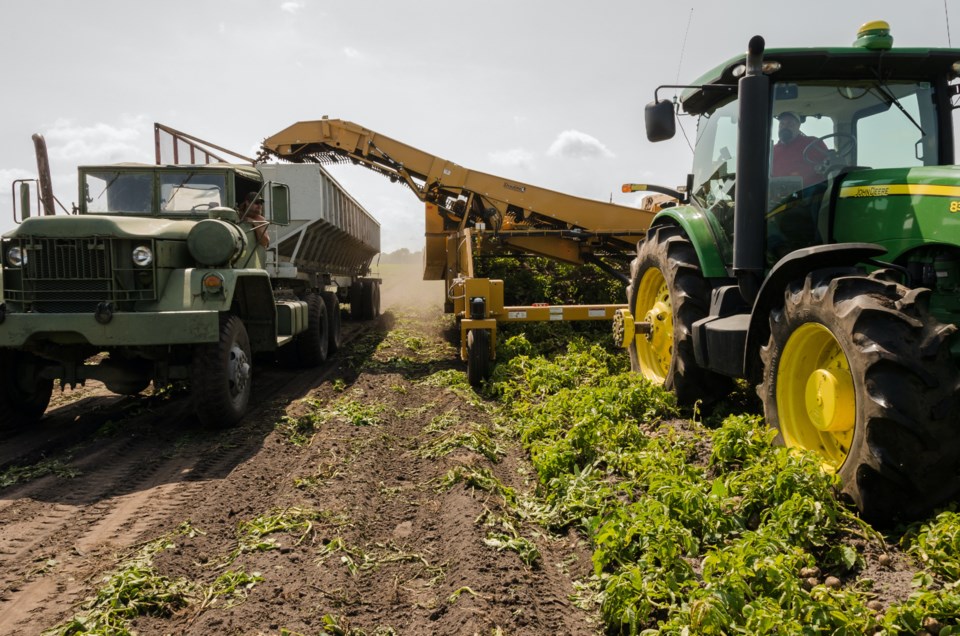TORONTO — June 20, 2022: Canada’s Next Policy Framework, aimed at strengthening and growing Canada's agriculture and agri-food sector, should lay out a clear roadmap to ensure farmers are competitive, productive and viable, says the Canadian Federation of Independent Business (CFIB).
Agriculture ministers will meet at the 2022 annual conference in July in Saskatoon. As they work on finalizing the policy framework, CFIB is urging all levels of government to focus on agri-businesses’ top priorities, particularly reducing the total tax burden and red tape.
“Less than one quarter of our agri-business members said the current five-year Canadian Agricultural Partnership was effective at improving the competitiveness of their agri-business. It is important new policies focus on ensuring agri-businesses’ voices are heard, so that they are profitable and more competitive,” said Jasmin Guenette, vice-president of national affairs at CFIB.
Agri-businesses are facing many challenges that have been exacerbated by the pandemic. An overwhelming majority of agri-businesses (94%) said the rising prices of inputs have impacted their business, followed by supply chain challenges (83%) and government increasing business costs (72%). Labour shortages (57%) also pose difficulties.
With these obstacles in their way, the overwhelming majority (99%) of farmers agree that governments must consider the financial and practical impact of new policies and regulations on the sector before implementing them.
“Given the current geopolitical situation in the world, economic sustainability, farm productivity and competitiveness should be at the heart of the policy framework to allow Canadian agri-businesses to supply their products across the country and the world,” said Virginia Labbie, senior policy analyst for agri-business at CFIB. “Governments should work on removing roadblocks, namely red tape, government regulation and the excessive carbon tax burden, that are hampering agri-businesses’ recovery. Canadian food producers don’t have room for innovation or improvement if they’re constantly facing the burden of new regulations and escalating carbon taxes.”
While environmental sustainability is an important goal, it is important to note Canadian farmers are already doing their part in protecting the environment. In fact, almost nine in 10 farmers (89%) said they have already implemented ways to protect the environment and reduce emissions. Governments should recognize this leadership and ensure new environmental policies do not add more costs or regulatory burdens to the farm sector.
“Now is not the time to add more costs and place additional burdens on agri-businesses. They are already dealing with skyrocketing costs of fuel and fertilizer coupled with supply chain issues, labour shortages and rising input costs,” Labbie continued. “The federal carbon tax is particularly unfair to farmers who have already been taking active measures to protect the environment. This is why CFIB is also urging Members of Parliament to expedite the passing of Bill C-234 to begin to address the unfairness of the federal carbon tax on agriculture.”
Among other recommendations detailed in CFIB’s Proposal for Canada’s Next Policy Framework (2023-2028), CFIB is calling on FPT governments to:
- reduce the total tax burden for agri-business;
- increase the focus on regulatory reform by reducing the burden of government regulation and red tape;
- implement policies to address labour shortages, such as improving access to the Temporary Foreign Worker Program, encouraging more Canadians to work in the agri-food industry, etc.;
- increase processing capacity and value-added opportunities, such as food/meat processing;
- design more effective business risk management programs; and
- improve access to reliable broadband internet in rural Canada.
Read CFIB’s full proposal for Canada’s Next Agriculture Policy Framework (2023-2028) here.
About CFIB: The Canadian Federation of Independent Business (CFIB) is Canada’s largest association of small and medium-sized businesses with 95,000 members, including 6,000 agri-businesses, across every industry and region. CFIB is dedicated to increasing business owners’ chances of success by driving policy change at all levels of government, providing expert advice and tools, and negotiating exclusive savings.




